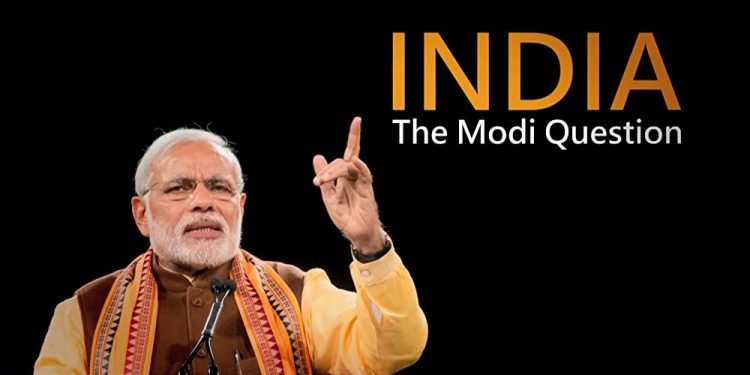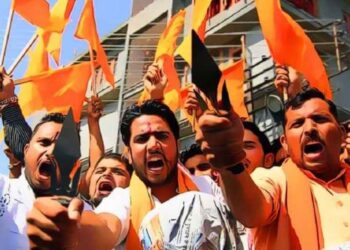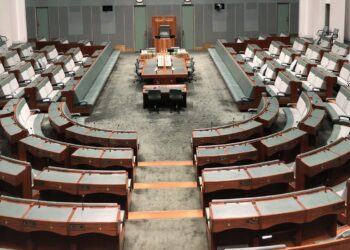The BBC documentary titled “India: The Modi Question” will be screened at the Parliament House in Canberra, ACT on Wednesday, May 24. Organised by We The Diaspora, the event will run from 5:30 pm to 7 pm AEST.
The documentary seeks to explore the role of India’s Prime Minister, Narendra Modi, in the Gujarat riots and the escalating persecution of India’s Muslims. It promises to be an insightful examination of the political dynamics in India under Modi’s leadership.
The screening of the documentary will be followed by a panel discussion on the Gujarat pogrom and Prime Minister Modi. The panel will feature prominent voices including Dr. Aakashi Bhatt, Professor Mohan Dutta, Aakar Patel, and Senator Jordan Steele John.
Interested attendees can secure their tickets through the Eventbrite platform.
The 2023 two-part documentary series “India: The Modi Question”, aired by BBC Two, has been banned in India amid significant controversy. The documentary explores Indian Prime Minister Narendra Modi’s political journey and his relationship with the country’s Muslim minority, which has incited a strong response from the Indian government and diverse sections of Indian society.
The series delves into Modi’s early political career, his involvement in the 2002 Gujarat riots when he was the state’s chief minister, and his policy decisions after his re-election in 2019. The controversial topics include the revocation of Kashmir’s autonomy, the introduction of a new citizenship law, and the government’s handling of the 2020 Delhi riots.
The Government of India issued a ban on the documentary, labelling it as “hostile propaganda and anti-India garbage”. Social media platforms were requested to remove any shared snippets from the series. In response, BBC stated that the documentary was thoroughly researched, and included a broad range of perspectives, including those from within Modi’s Bharatiya Janata Party (BJP).
The ban has been frequently circumvented, with several student organisations arranging screenings across the country. The prohibition was widely criticised as censorship by opposition politicians, human rights groups, and commentators, who described it as an assault on press freedom.
The documentary also examines the aftermath of the Gujarat riots in 2002, which resulted in over a thousand deaths and displaced 150,000 people, marking some of the worst religious violence in India since its independence in 1947. Modi’s role in these riots remains a topic of contention.
Part one of the documentary focuses on Modi’s early political career and the 2002 Gujarat riots, presenting evidence, including UK government documents suggesting the Gujarat violence bore “all the hallmarks of an ethnic cleansing”. The second part, released a week later, scrutinises the policies of Modi’s administration post his re-election in 2019, including the abrogation of Kashmir’s autonomy and the introduction of a new citizenship law.
Following the Indian government’s ban, various student groups and organisations have held screenings in defiance. This act of civil disobedience has led to arrests, such as those at Jamia Millia University, where police reportedly deployed riot gear and tear gas on campus.
The ban has also sparked significant international critique. Human Rights Watch labelled it as indicative of the harsh treatment of religious minorities under Modi’s administration, while The New York Times viewed it as the latest instance of Modi’s suppression of press freedom.
In response to the documentary, the BBC’s offices in Mumbai and New Delhi were searched by the Income Tax Department of India, a move viewed by many as retaliation for the release of the series. This led to further criticism from organisations like the Editors Guild of India and Amnesty International India.
The documentary series has received mixed reviews, with some praising its thorough research and others critiquing its inability to uncover new ground. Nonetheless, “India: The Modi Question” has sparked a crucial debate on freedom of the press, governmental critique, and religious tolerance in the country.
Despite the cancellation of the Quad leaders’ meeting in Sydney due to US President Joe Biden’s postponement, Prime Minister of India, Narendra Modi, is confirmed to be visiting Australia next week. In his upcoming visit, he will engage in a bilateral meeting with Australian Prime Minister, Anthony Albanese, as well as conduct business meetings and hold a public event at the Olympic site in Sydney.











